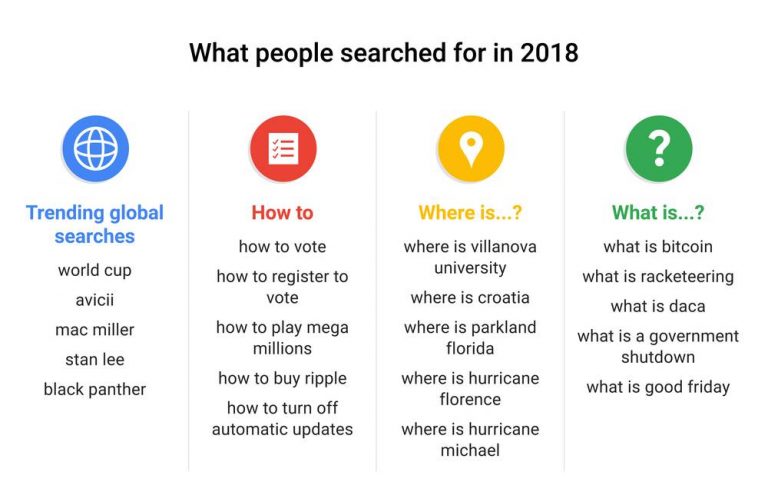
- COMPARE SEARCH TRENDS HOW TO
- COMPARE SEARCH TRENDS FREE
The interest around a topic or word is quantified in a numerical range from 1 to 100 and illustrated in a line graph that shows how this score has varied over time. This can be one that we have entered in the tool’s search engine or -if we do not want to check a specific term- we can look at the ranking of popular topics that the tool produces itself.
COMPARE SEARCH TRENDS FREE
Google Trends is a free tool, available and accessible online to anyone, which is used to check and monitor the interest of users around the world in a topic or keyword. What is Google Trends and what is it for? With this guide you will learn another way of ranking and a way of focusing your content that very few people know about, all through the free Google Trends tool. Said in other words – content which is triggering the interest of users and for which they expect to find answers in Google or even in Social Media. Above all it will be content that revolves around what is trending. In this guide we are going to explore its functionalities and how it can be used to develop a content SEO strategy in which different types of content can be combined. For years we have been using other SEO tools to rank our projects and generate content, and we have not realised that Trends is the key to ranking faster and faster. Google Trends is one of the oldest Google tools but the least known. In conclusion, why should you use Google Trends for your SEO content strategy?.Find product niches in demand for your affiliate content.Take advantage of what is searched in your region to do local SEO and reach more people.Identify related queries and questions that are being searched for and answer them in your content.

Get inspiration and new ideas for timeless evergreen content.Plan your seasonal content and stay ahead of the pack.
COMPARE SEARCH TRENDS HOW TO
How to use the interest over time of a trend in our content strategy. How to identify keywords or trending topics in Google Trends. How do you know what is trending on Google? Rank before anyone else. Check the seasonality of your keyword and decide when and how to attack it. Check the popularity over time of a keyword to decide whether it suits you or not. Beyond volume: check the relevance of your keywords. How to boost your SEO and content strategy with Google Trends. Get the minute by minute with Google Trends advanced time search Get the minute by minute with the predefined filters of Google Trends How to get real time (minute by minute) information with Google Trends. Comparative search: how to compare keywords in Google Trends. Advanced Google Trends: search tricks for comparing terms and obtaining minute-by-minute data. Search results in Google Trends: types and how to interpret them. The 3 types of search we can do in Google Trends. How to search in Google Trends to get the most out of it. The Google Trends menu and its functionalities.  How do I use Google Trends? A tour of the tool. Google’s Knowledge Graph and semantic search. More than keywords: discovering entities with Google Trends. What data does Google Trends work with and what characterises it?. Why we don’t talk about volume but about interest. What is Google Trends and what is it for?. Guide to Google Trends for SEO & Content Marketing. You can find topics below your search term.įor example, if you search London, and choose the corresponding topic, your search includes results for topics like "Capital of the UK" and "Londres," which is "London" in Spanish. Topics are a group of terms that share the same concept in any language. If you search "banana sandwich", you don't get results for "banana," "sandwich banana," and "banana and peanut butter sandwich.". If you search "banana sandwich", you get results like "banana sandwich," and "delicious banana sandwich.". You don't get results for individual words within the term. If you search a term in quotes: You get results that include the exact term. If you search banana sandwich, you get results like "banana sandwich," "banana sandwich recipe," and "peanut butter sandwich with banana.". If you search multiple terms: You get results that include each word, in any order. If you search banana, you get results like "banana" and "banana sandwich.".
How do I use Google Trends? A tour of the tool. Google’s Knowledge Graph and semantic search. More than keywords: discovering entities with Google Trends. What data does Google Trends work with and what characterises it?. Why we don’t talk about volume but about interest. What is Google Trends and what is it for?. Guide to Google Trends for SEO & Content Marketing. You can find topics below your search term.įor example, if you search London, and choose the corresponding topic, your search includes results for topics like "Capital of the UK" and "Londres," which is "London" in Spanish. Topics are a group of terms that share the same concept in any language. If you search "banana sandwich", you don't get results for "banana," "sandwich banana," and "banana and peanut butter sandwich.". If you search "banana sandwich", you get results like "banana sandwich," and "delicious banana sandwich.". You don't get results for individual words within the term. If you search a term in quotes: You get results that include the exact term. If you search banana sandwich, you get results like "banana sandwich," "banana sandwich recipe," and "peanut butter sandwich with banana.". If you search multiple terms: You get results that include each word, in any order. If you search banana, you get results like "banana" and "banana sandwich.".  If you search for a term: You get results that include that word. Important: When you enter a search term, you get matches for the terms in your chosen language. You can define your search words as terms or topics depending on your search needs.
If you search for a term: You get results that include that word. Important: When you enter a search term, you get matches for the terms in your chosen language. You can define your search words as terms or topics depending on your search needs.







 0 kommentar(er)
0 kommentar(er)
